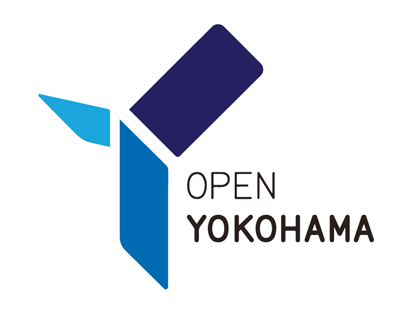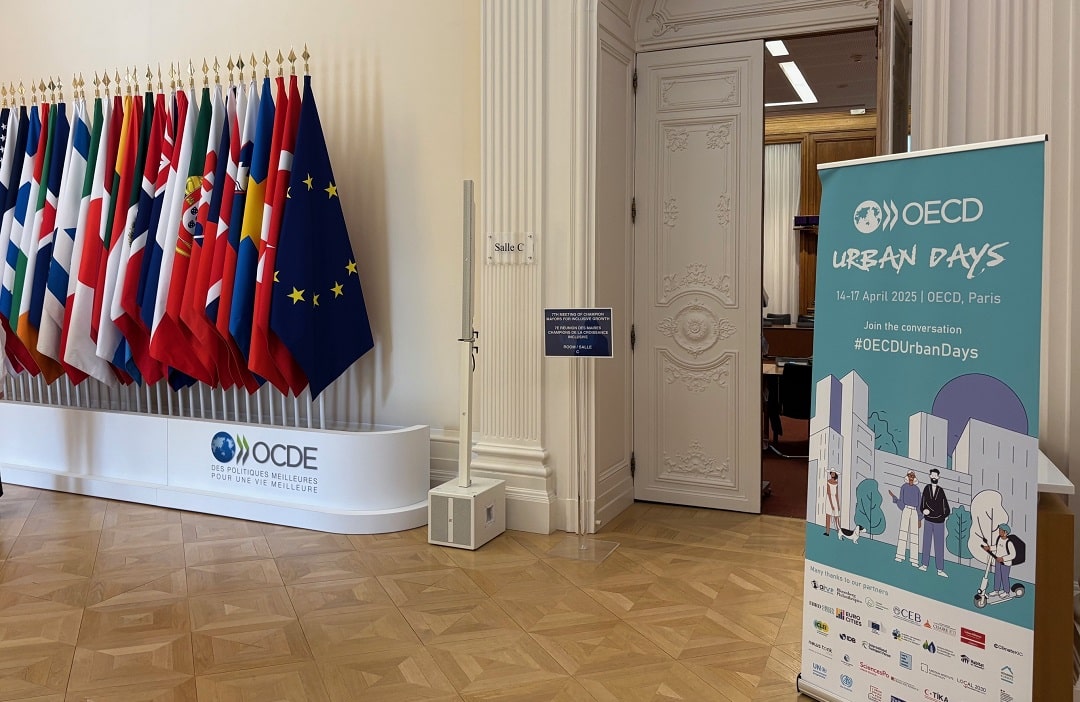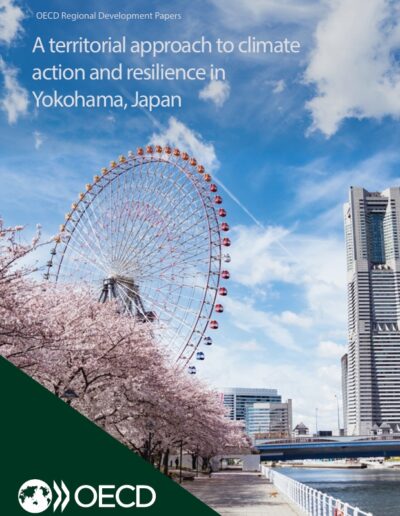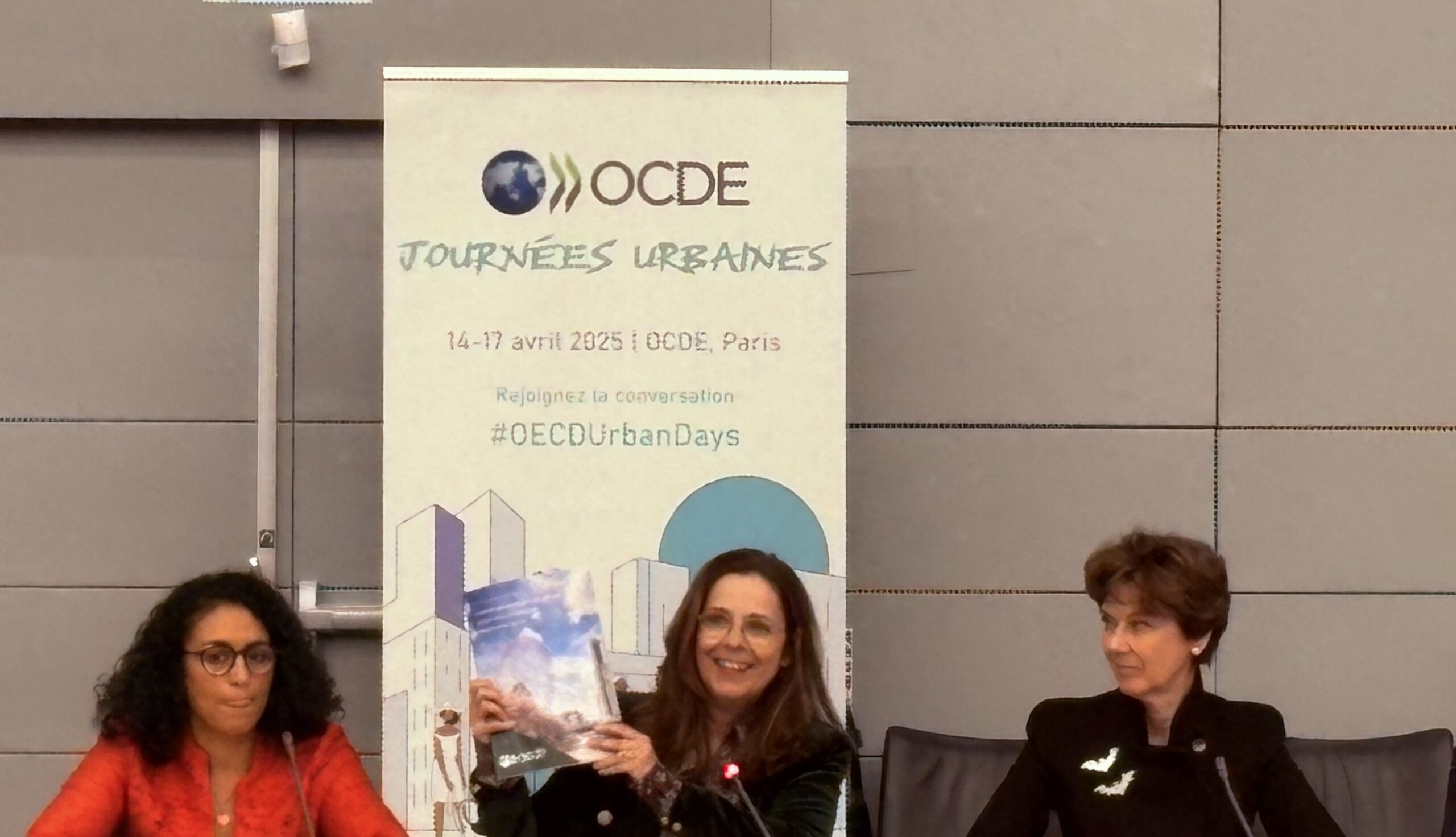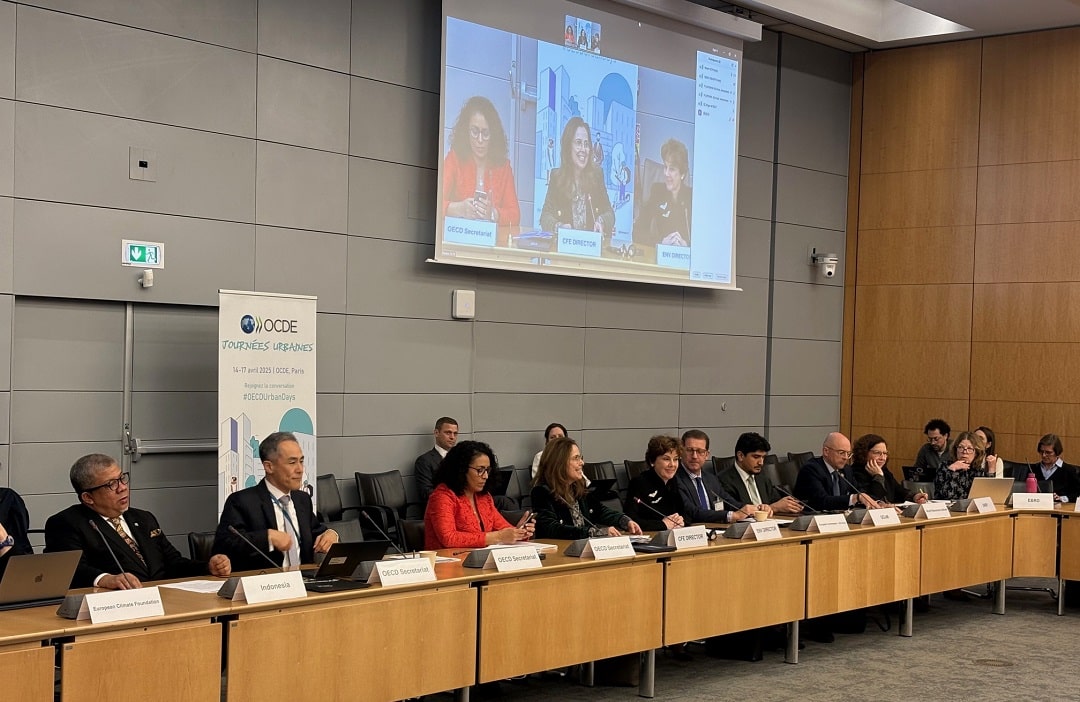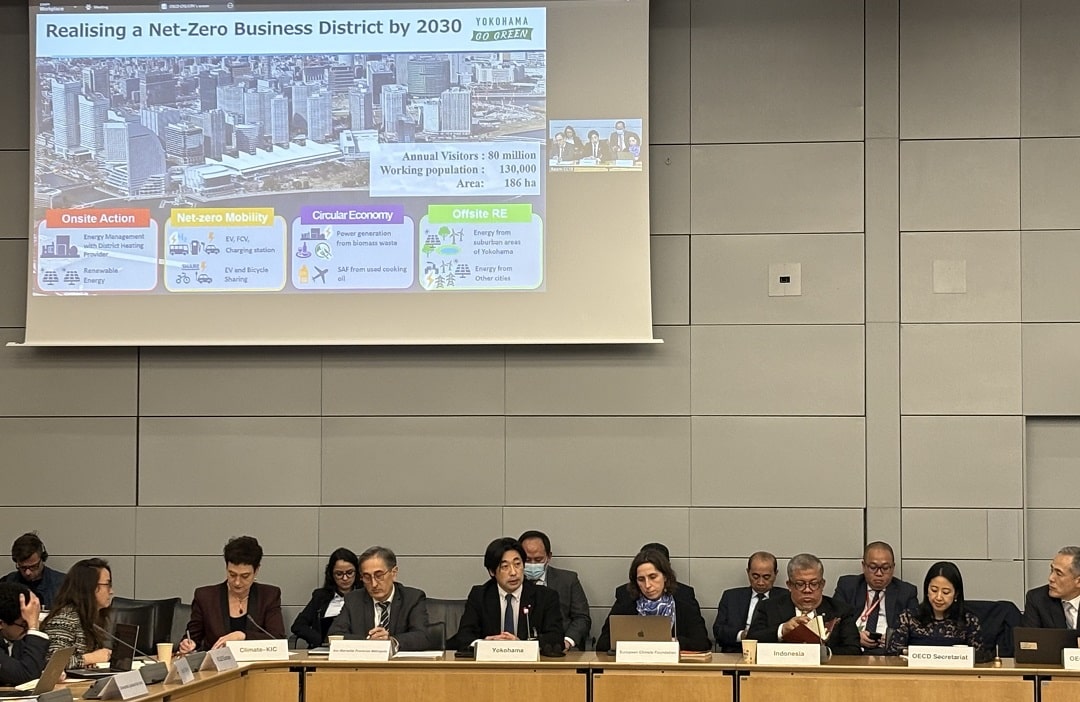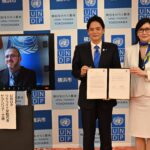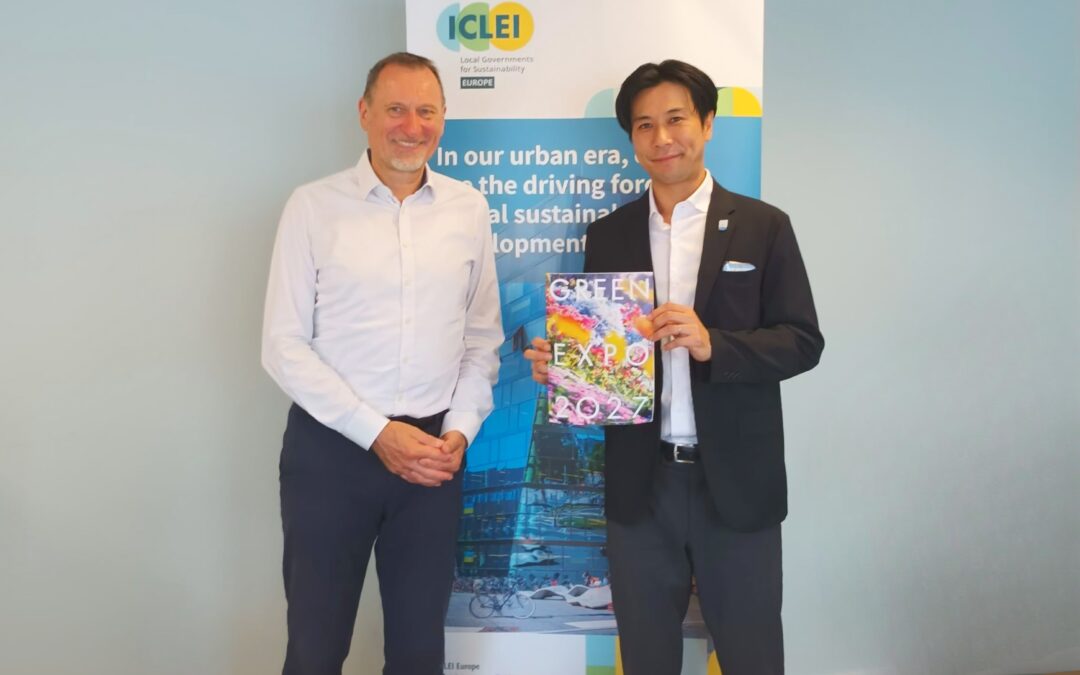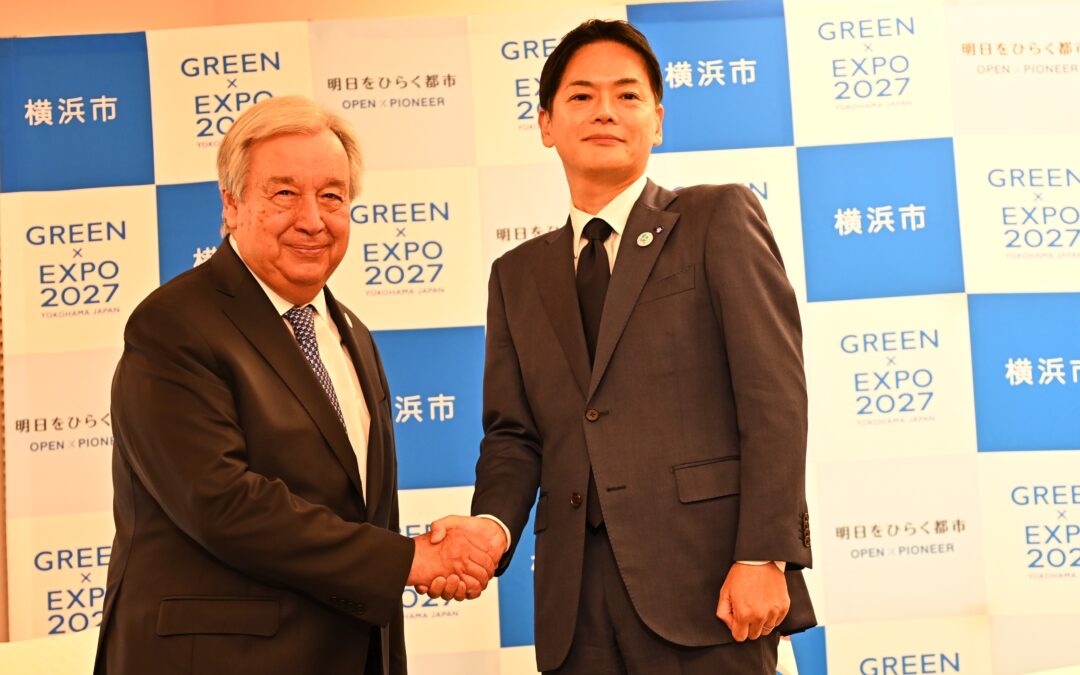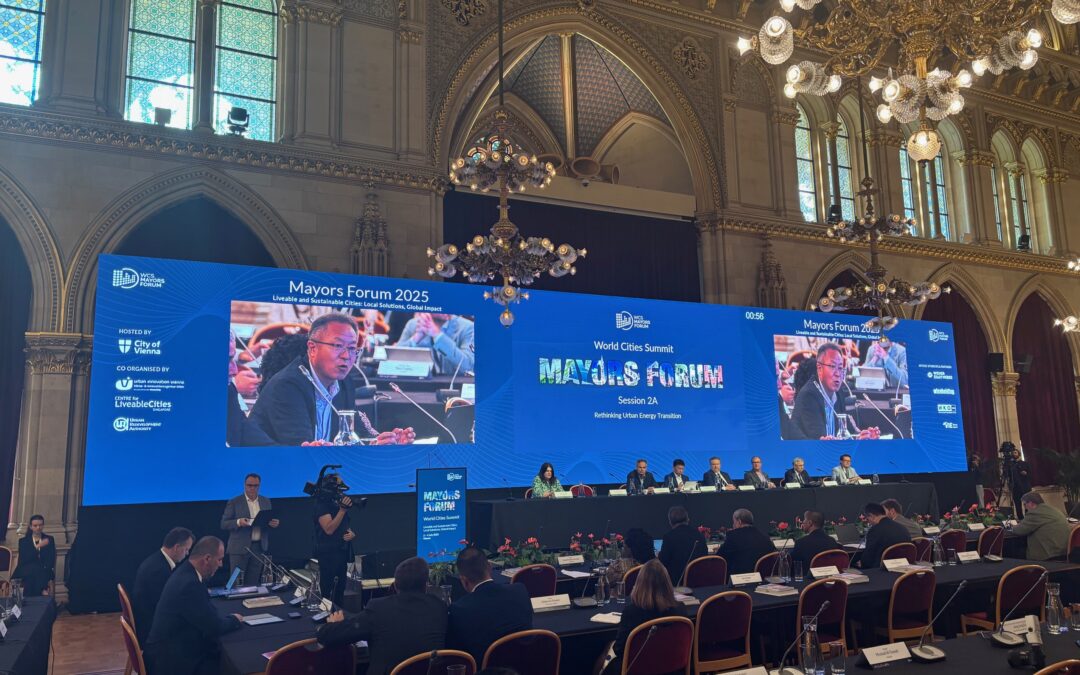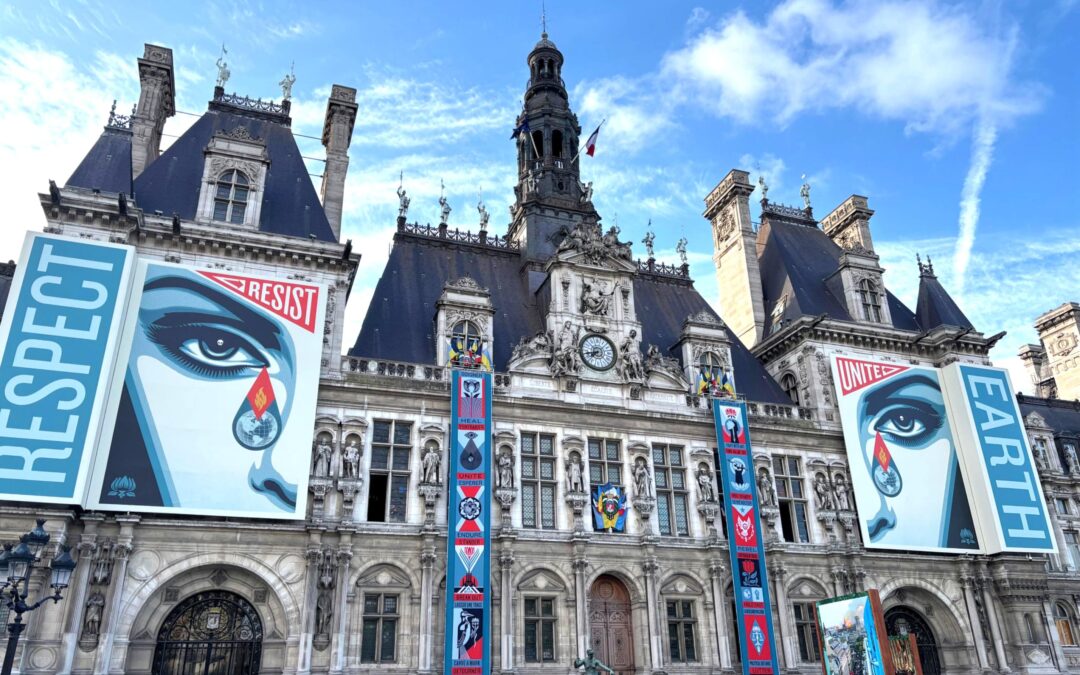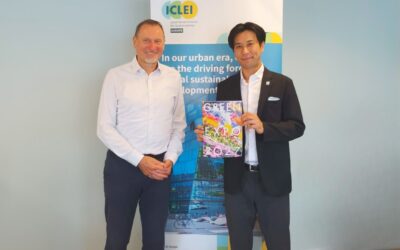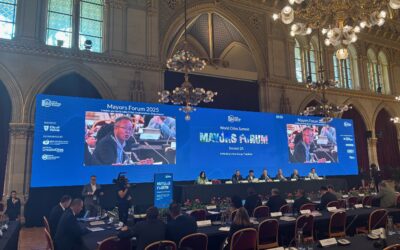The OECD published a report assessing Yokohama’s climate change measures at the international conference Urban Days, held at the OECD (Organization for Economic Cooperation and Development) headquarters in Paris, France, from 14-17 April 2025.
The OECD believes that climate change action in cities and other regions is important, and at COP 28 (28th Conference of the Parties to the UN Framework Convention on Climate Change) in 2023, the OECD announced the TACAR (Territorial Approach to Climate Action and Resilience), which will assess policies using its own indicators. Yokohama was the first city in the world to be assessed and have a report published by TACAR, and the city’s climate change measures were highly commended.
Towards building strong and sustainable cities
The conference brought together more than 150 heads of state, policy makers, experts and academics from Europe and elsewhere to discuss inclusive, circular and sustainable urban development and financing. Over 10 sessions were held on themes such as building cities for all generations, tackling the housing supply shortage crisis, promoting a circular resource economy, building resilient finance and local communities to combat climate change, sharing best practice and knowledge based on the latest evidence from the OECD.
OECD Director-General Lamia Kamal-Chaoui presenting the Yokohama report
On the first day, the seventh meeting of the OECD Champion Mayors for Inclusive Growth was held, a global coalition of heads of state and government working to promote inclusive growth, of which Yokohama Mayor Takeharu Yamanaka is a member. The more than ten recommendations to governments to work with cities to combat climate change together emphasized how important this aspect was to the participants.
TACAR
A session entitled ‘Spotlight on SDG 13 “Climate” – A Territorial Approach to Climate Action and Resilience (TACAR)’ was held on the 16th. The regional approach is a concept in which cities and regions play an important role in tackling climate change, promoting decarbonization and building resilience. However, it is important to recognize that each region has different challenges and characteristics, so policies need to be developed that are tailored to each region.
The OECD’s Territorial Approach to Climate Action and Resilience (TACAR), launched at COP28, is based on this idea and provides assessment tools and policy guidance to countries and cities. Yokohama has been selected as the first city to be assessed.
The report commends the City of Yokohama for its promotion of various decarbonization model initiatives in the decarbonization lead district Minato Mirai through public-private partnerships, and for its ongoing contribution to sustainable urban development in other Asian cities.
Session participants from diverse sectors engaged in vigorous discussions
Presenting the report, Lamia Kamal-Chaoui, Director of the OECD Centre for Entrepreneurship, SMEs, Regions and Cities, said: ‘We believe that this report will also contribute to the IPCC’s Special Report on Climate Change Preparedness and Cities and will provide valuable lessons for many countries and cities worldwide. In the future, all of us should work together to build momentum for location-based climate action’.
OECD Environment Director Tyndall also underlined the importance of cities in combating climate change, stating that ‘regional approaches enable national and local governments to fulfil their potential in both reducing CO2 emissions and building more resilient societies, and will help to create more resilient, inclusive and sustainable communities’.
Mr. Yutaka Matsuzawa, Vice-Minister for Global Environmental Affairs at the Ministry of the Environment in Japan, also stressed the importance of working with Yokohama and other local authorities to tackle climate change, stating that it is crucial to learn from local-level experiences in order to solve local and global environmental problems in an integrated manner. He further stated that ‘The GREEN x EXPO 2027, which will be held in Yokohama in 2027, is an important opportunity to strengthen cooperation between stakeholders on integrated actions to build a sustainable society.’
Norio Tomioka, Executive Director of the Global Network Promotion Department, International Bureau, presented the measures taken by the City of Yokohama
Initiatives of the City of Yokohama
In this session, Norio Tomioka, Executive Director of the Global Network Promotion Department, International Bureau, from the City of Yokohama, gave examples of Yokohama’s local climate action and global leadership initiatives in the Minato Mirai 21 area as a decarbonization frontrunner, and technical cooperation projects in Bangkok, Danang and Metro Cebu.
Yokohama is promoting the development of a recycling-oriented sustainable city by actively sharing its knowledge at international conferences, such as the Asia Smart City Conference, while deepening cooperation with the OECD and other national and international key players.
